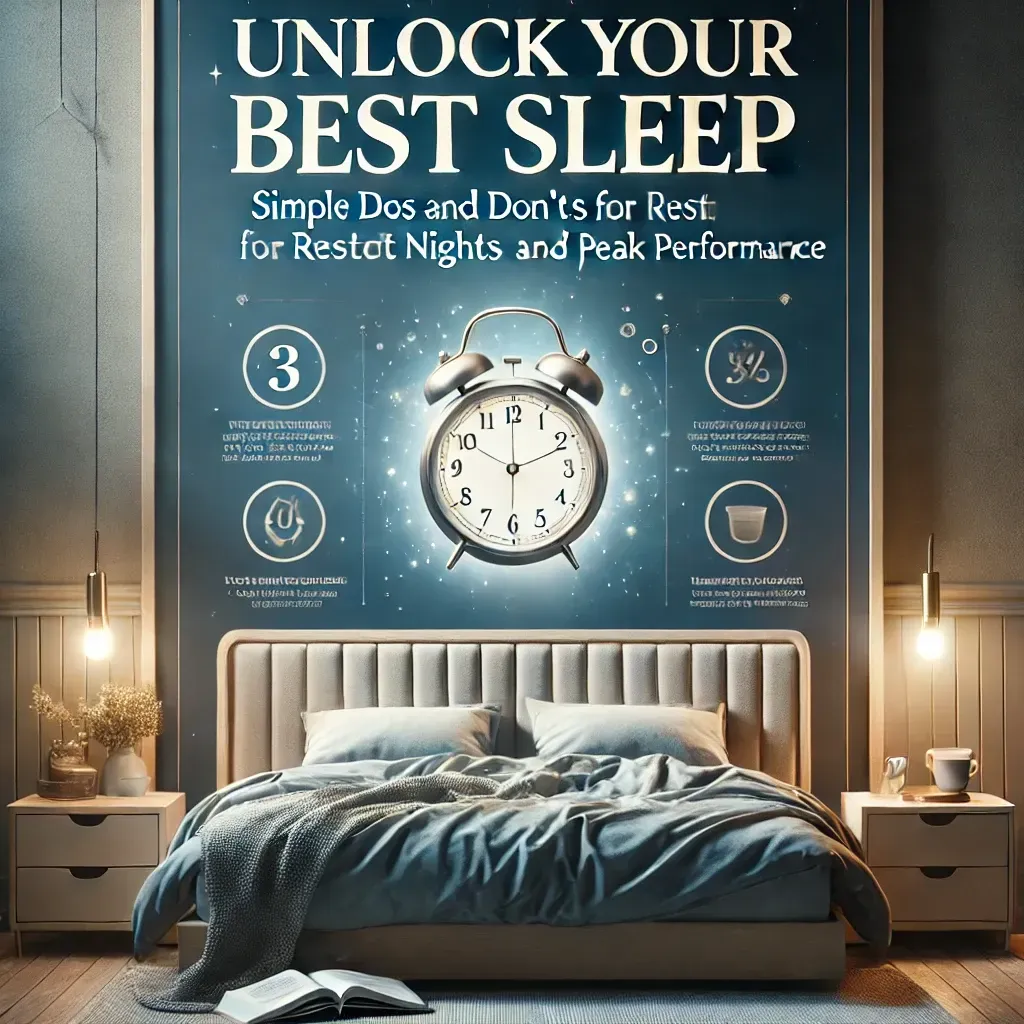
Unlock Your Best Sleep
Hey Health Club,
We’re going to explore how to optimise your sleep and the tools you can use to improve it.
Let's set the Parameters for Great Sleep!
To set yourself up for restful nights, there are four key principles you need to follow:
1. Aim for 7-9 Hours of Sleep
- This is the ideal range for most adults. It allows your body enough time to recover, repair, and recharge.
- Sleeping less than 7 hours can lead to fatigue, poor focus, and slower recovery while sleeping more than 9 hours can leave you feeling groggy.
- Start by tracking how much sleep you currently have and adjust gradually until you find your optimal amount.
2. Keep a Consistent Bedtime
- Going to bed at the same time every night (even on weekends!) helps regulate your body’s internal clock.
- This consistency leads to better quality sleep and makes waking up easier.
- Set a bedtime alarm or reminder to make this a daily habit—it works wonders.
3. Create a Wind-Down Routine
- A relaxing bedtime routine helps signal to your body that it’s time to sleep. This could include light reading, meditation, or stretching.
- Avoid stimulating activities like scrolling through your phone or watching intense TV shows at least an hour before bed.
- Keep it simple and repeat the routine every night to prepare your mind and body for rest.
4. Optimise Your Sleep Environment
- Keep your bedroom dark, quiet, and cool—an ideal temperature is around 16-19°C.
- Invest in comfortable bedding and use blackout curtains if necessary.
- Eliminate distractions like clutter or electronics, turning your bedroom into a peaceful sanctuary for sleep.
Things to Avoid for Better Sleep
Now that you know what to do, let’s talk about the things you should avoid if you want to optimise your sleep:
1. Stop Eating Late
- Eating heavy meals close to bedtime makes your body focus on digestion instead of preparing for sleep.
- Aim to finish your last meal at least 2-3 hours before bed.
2. Avoid Stimulants After Midday
- Caffeine, energy drinks, and even certain teas can disrupt your ability to fall asleep, even if consumed hours earlier.
- Stick to having stimulants in the morning, and switch to herbal teas or decaf in the afternoon.
3. Limit Evening Light Exposure
- Bright lights, particularly blue light from phones, tablets, and laptops, suppress melatonin production and disrupt your body’s sleep cycle.
- Dim your lights in the evening and consider using blue-light-blocking glasses or screen filters.
Your Sleep Recipe
With these simple dos and don’ts, you now have a straightforward recipe for better sleep. Remember, consistency is key—stick with these habits, and you’ll soon notice the difference in your energy, focus, and recovery.
What’s Next?
If you’re ready to take your recovery and overall health to the next level, I’ve got you covered. Download my free Sleep Optimisation Checklist—a simple guide to help you start improving your sleep tonight.
Stay tuned for the next post, where we’ll tackle another essential topic to help you improve your health and well-being. Until then, sweet dreams!
